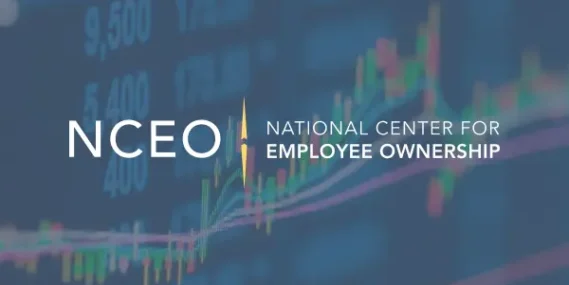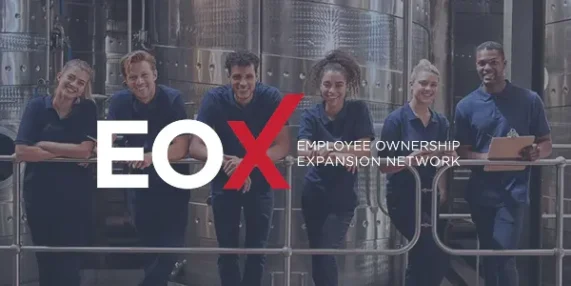Employee Ownership Conversion
Did you know that 80% of businesses listed for sale never find a buyer? Too often, this leads to closures—costing loyal employees their jobs, pulling money out of the community, and handing opportunities over to big corporations instead of keeping them local.
But there’s another way
Fortunately, there’s a program designed to help keep businesses in local hands. Most business owners are automatically approved, making it easier to transition ownership without the usual financial barriers. Plus, participants receive valuable tax credits and discounts, making the process even more affordable.
What are the requirements?
At least three interested employees
Sale of at least 20% of the business
Located in Colorado

Is my business ready for employee ownership conversion?
Transitioning to an employee-owned business is a significant decision that requires careful planning. Below are the essential factors to evaluate before moving forward, from financial preparedness to leadership succession.
Business & Leadership Transition Readiness
- What motivates your interest in transitioning to employee ownership?
- Are you planning immediate retirement, or do you wish to remain involved post-transition? If so, for what duration?
- Who is prepared to assume leadership roles after your departure?
- How would you describe your company's current cultural environment?
Evaluating Financial Preparedness
- How many employees are expected to become initial owners?
- Are there existing financial obligations that need addressing?
- Will you provide financial assistance, such as loans or equity buy-in options, to employees interested in purchasing the company?
- What financial returns or benefits do you aim to secure upon selling your company?
Defining Governance Structure
- Which governance framework and legal model of employee ownership align best with your company's vision and operations?
For a limited time
The Colorado Office of Economic Development and International Trade (OEDIT) Employee Ownership program is covering 50% of a qualified business’ conversion costs to employee ownership ( up to $150,000.00), but only for a limited number of businesses. Rural businesses may also qualify for exclusive discounts and tax breaks.
Don’t wait—contact the Rocky Mountain Employee Ownership Center today to secure your spot, protect your legacy, and empower the people who helped build it.
The Benefits of Employee Ownership

Establishing a Lasting Legacy
Approximately 80% of business owners seeking to sell face challenges in finding a buyer
Transitioning to employee ownership offers an internal solution, ensuring business continuity and preserving jobs and organizational culture.

Enhancing Business Performance
Enhancing Business Performance
Compared to traditional businesses, employee-owned enterprises experience:
- 5% higher growth in employment and sales.
- Employee Stock Ownership Plans (ESOPs) are 25% more likely to remain operational.
- 90% of worker cooperatives sustain operations beyond five years, whereas only 20% of traditional businesses achieve the same milestone.

Improving Employee Life
Employee-owners benefit from:
- Being four times less likely to face layoffs during economic downturns.
- Possessing 2.5 times greater household wealth compared to employees in conventional firms.
- Improved job quality, wealth accumulation, and strengthened ties to local communities through employee ownership.
Ready to convert your company?
Converting to employee ownership offers both tangible and intangible benefits to everyone from the workers and selling owners to the company itself. Worker ownership is better for the environment, better for local communities, and a model for progress toward addressing social issues like racial and gender disparity in the workplace. RMEOC is devoted to advancing an economic agenda that works for everyone.
Interested in learning more about how employee ownership can benefit your business while creating a more inclusive economy?
It’s the process of transitioning a business from traditional ownership to one where employees share ownership and decision-making power — often through a worker cooperative, ESOP, or employee ownership trust.
Employee ownership can secure your legacy, retain jobs, and strengthen your community — while offering a fair exit strategy and potential tax benefits.
Almost any established, profitable business can explore employee ownership — from local service firms to manufacturers and professional practices. The key is having a stable workforce and sustainable cash flow.
Additional Resources
Social cooperatives transform care for marginalized communities while creating meaningful jobs.
Ready to dive deeper and support the movement? Explore these resources:

Employee Ownership by the Numbers
Counts and characteristics of ESOPs and other employee stock ownership plans in the U.S., drawn on data made available by the U.S. Department of Labor and other sources.

Employee Ownership Resource Center
The Fifty by Fifty “Employee Ownership Resource Center” provides a comprehensive hub of research, guides, and tools designed to help business owners transition to employee‐ownership models and support organizations in building inclusive ownership ecosystems.

